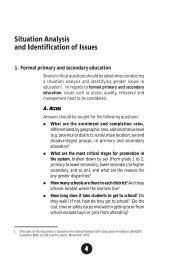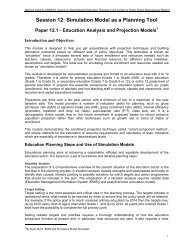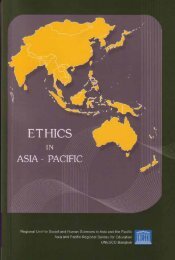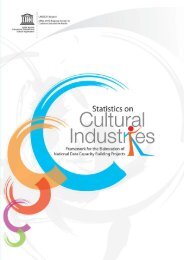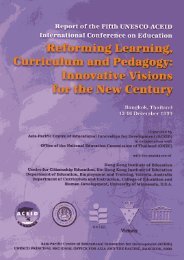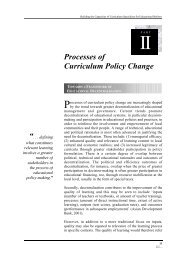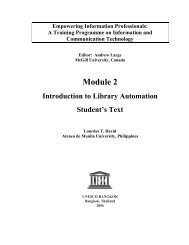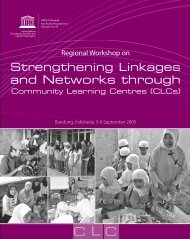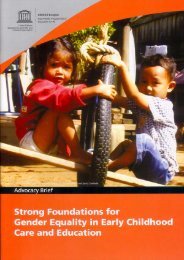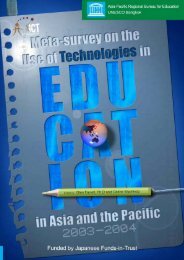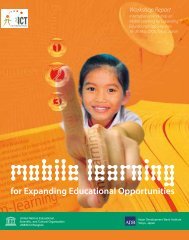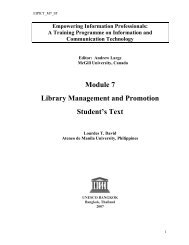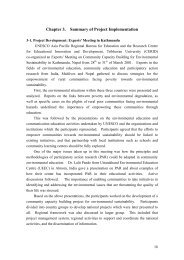Download PDF, 752KB - UNESCO Bangkok
Download PDF, 752KB - UNESCO Bangkok
Download PDF, 752KB - UNESCO Bangkok
You also want an ePaper? Increase the reach of your titles
YUMPU automatically turns print PDFs into web optimized ePapers that Google loves.
AUSTRALIA1. Developing Socially Just SchoolsViolence is a growing problem in Australian primary and secondaryschools. In many cases such violence is emotional and psychologicalrather than physical and, as such, does not fit traditional definitions.Bullying is more common in primary school; in secondary students areoften the subject of deliberate rumours and the writing of spurious notes.The issue is tackled in this award-winning project, undertaken since 1996in association with the Department of Education, Victoria. It involvesworkshops for teachers and students that examine critically the wholeschool culture, and that aim to develop policies and curricula on a wholeschool approach to facilitate a socially just school environment. Theconsultants - Berry Street - are established as a Non-GovernmentOrganization since 1996. They have adopted a broad inclusive definitionof violence that challenges existing relationships based on dominationand submission, and facilitates an understanding of violence as acontinuum of behaviours. Teachers and students are taught to see thatviolence takes many forms and ranges from the more subtle andpervasive forms of coercion, intimidation, abuse and harassment to moreserious illegal acts of assault. A central idea is that all forms of violentbehaviour are an intention to exert power and control.List of Projects by CountryReferenceLynch, T (1998), Developing socially just schools: The use of gender analysis inaddressing the personal, professional and institutional manifestations ofviolence. Paper presented to Secondary Education and Youth at theCrossroads Conference, ACEID, <strong>Bangkok</strong>, Thailand.ContactTheresa Lynch, Berry Street, 1 Berry Street, East Melbourne, Victoria,Australia, Tel: 61-3-9429-9266, Fax: 61-3-9429-5160.2. Student Teacher Attitudes to Indigenous YouthAustralia’s indigenous population represents less than 3 per cent of thetotal. While traditionally they have lived in rural areas there has been arecent drift to urban areas. Most student teachers in Australia are fromAnglo-Celtic heritage, female and under 25 years of age.List of Projects by Country © 23



